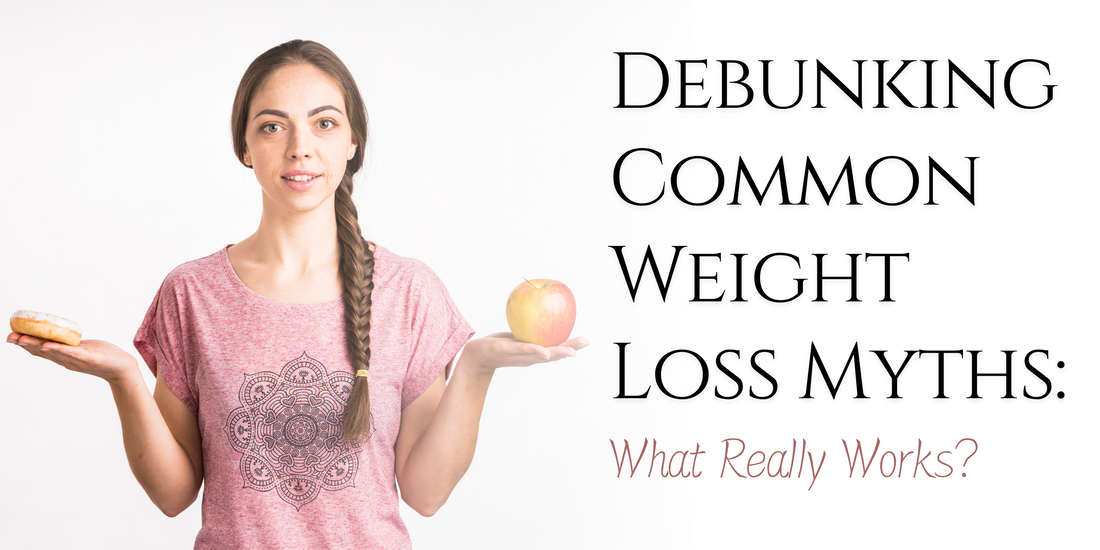
Debunking Common Weight Loss Myths: What Really Works?
Million's SmileShare
Introduction
The world of weight loss is filled with myths and misconceptions that can lead to confusion and frustration. With so much conflicting information available, it’s easy to fall for popular but misleading advice. In this blog, we’ll debunk some of the most common weight loss myths and separate fact from fiction, helping you adopt strategies that truly work for effective and sustainable weight management.
1. Myth: Carbs Are Bad for Weight Loss
The Truth: Carbohydrates are often vilified in weight loss circles, but they are not inherently bad. Carbs are a primary source of energy for your body, and many carbohydrate-rich foods provide essential nutrients and fiber.
-
Reality Check: The key is to focus on the type of carbs you consume. Whole grains, fruits, and vegetables are healthy sources of carbohydrates that can support weight loss when eaten in appropriate portions. Refined carbs, like those found in sugary snacks and white bread, should be limited.
-
Tip: Opt for complex carbohydrates like quinoa, brown rice, and sweet potatoes, and pair them with protein and healthy fats for balanced meals.
2. Myth: Skipping Meals Helps You Lose Weight
The Truth: Skipping meals may seem like a quick way to cut calories, but it often leads to overeating later. When you skip meals, you might experience increased hunger and cravings, which can result in consuming more calories than you would have if you had eaten regularly.
-
Reality Check: Eating regular, balanced meals helps maintain steady blood sugar levels and keeps your metabolism functioning optimally.
-
Tip: Aim for three nutritious meals and one or two healthy snacks each day to keep hunger at bay and support weight management.
3. Myth: All Calories Are Equal
The Truth: While it’s true that a calorie is a unit of energy, not all calories are created equal. The source of your calories can affect how your body processes them and how full you feel.
-
Reality Check: Calories from nutrient-dense foods like fruits, vegetables, lean proteins, and whole grains are more beneficial for weight loss than calories from processed foods and sugary beverages. Nutrient-dense foods provide essential vitamins, minerals, and fiber that support overall health and satiety.
-
Tip: Focus on quality over quantity by choosing whole, unprocessed foods and avoiding empty-calorie foods that lack nutritional value.
4. Myth: You Need to Do Hours of Cardio to Lose Weight
The Truth: While cardiovascular exercise is important for overall health and can contribute to calorie burning, it’s not the only way to lose weight. Strength training and high-intensity interval training (HIIT) can also be effective for burning calories and building muscle, which boosts metabolism.
-
Reality Check: A balanced exercise routine that includes both cardio and strength training is more effective for long-term weight management. Additionally, incorporating physical activity into your daily routine, such as walking or biking, can also contribute to weight loss.
-
Tip: Combine cardio with strength training exercises to maximize your weight loss efforts and improve overall fitness.
5. Myth: Detox Diets Are a Quick Fix for Weight Loss
The Truth: Detox diets and cleanses often promise rapid weight loss and a “clean slate” for your body, but they are usually unsustainable and can lead to temporary weight loss followed by rebound weight gain.
-
Reality Check: There is no scientific evidence to support the need for detox diets. Your body has its own natural detoxification systems through the liver, kidneys, and digestive tract. A balanced diet and regular exercise are more effective for long-term health and weight management.
-
Tip: Focus on making gradual, sustainable changes to your eating and exercise habits rather than relying on fad diets or cleanses.
6. Myth: Supplements Are a Magic Solution for Weight Loss
The Truth: Weight loss supplements often claim to provide a quick fix, but many lack scientific evidence to support their effectiveness. Some may even have harmful side effects.
-
Reality Check: No supplement can replace a healthy diet and regular exercise. Instead of relying on supplements, focus on building healthy lifestyle habits that support weight loss and overall well-being.
-
Tip: If you are considering supplements, consult with a healthcare provider to ensure they are safe and appropriate for your individual needs.
7. Myth: You Can Spot-Reduce Fat
The Truth: Spot-reducing, or targeting fat loss in specific areas of the body, is a common myth. Fat loss occurs throughout the body as a result of overall calorie burning, not through targeted exercises.
-
Reality Check: While you can strengthen specific muscle groups, fat loss is achieved through a combination of a healthy diet, regular exercise, and overall calorie expenditure.
-
Tip: Incorporate a variety of exercises that work different muscle groups and focus on overall body fitness to support balanced fat loss.
8. Myth: Eating Late at Night Causes Weight Gain
The Truth: The time of day you eat does not directly affect weight gain. What matters more is your overall caloric intake and the quality of the food you eat throughout the day.
-
Reality Check: Late-night eating can become a problem if it leads to consuming excess calories or unhealthy snacks. It’s more important to focus on portion sizes and food choices rather than timing.
-
Tip: Listen to your body’s hunger cues and aim for balanced meals and snacks throughout the day. If you eat late, choose healthy options and avoid mindless snacking.
Conclusion
Weight loss is often surrounded by myths and misconceptions that can mislead and hinder your progress. By debunking these common myths and focusing on evidence-based strategies, you can adopt a more effective and sustainable approach to managing your weight. Remember, there is no one-size-fits-all solution, and the key to successful weight management lies in making informed choices and creating healthy, lasting habits.
